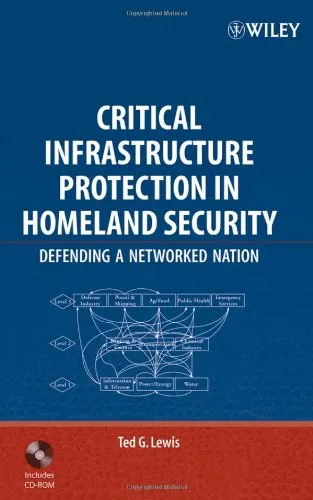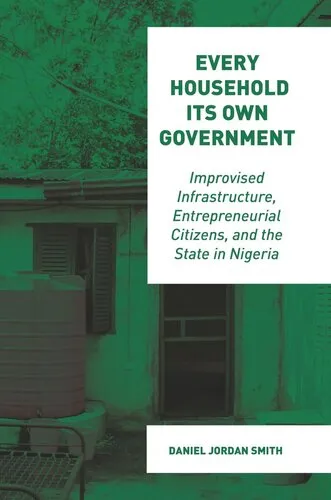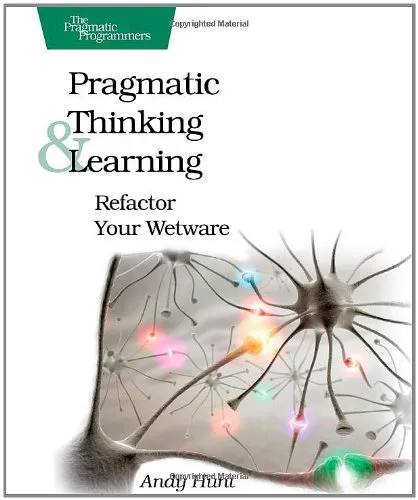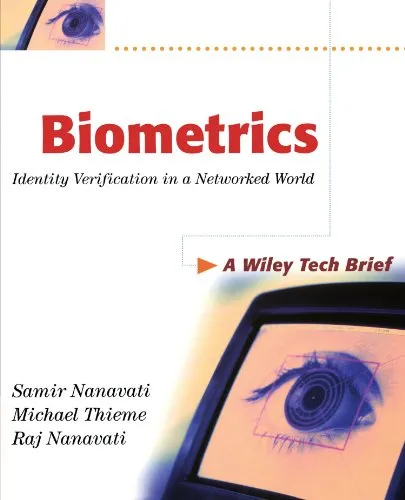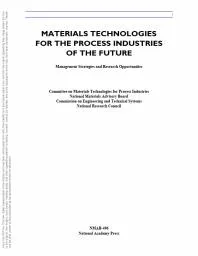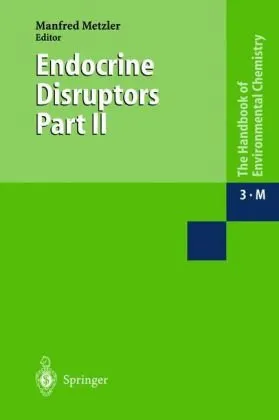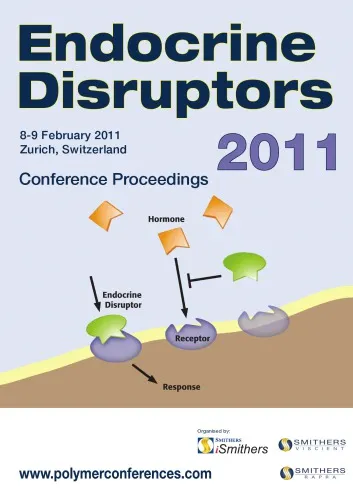Critical Infrastructure Protection in Homeland Security: Defending a Networked Nation
4.0
بر اساس نظر کاربران

شما میتونید سوالاتتون در باره کتاب رو از هوش مصنوعیش بعد از ورود بپرسید
هر دانلود یا پرسش از هوش مصنوعی 2 امتیاز لازم دارد، برای بدست آوردن امتیاز رایگان، به صفحه ی راهنمای امتیازات سر بزنید و یک سری کار ارزشمند انجام بدینکتاب های مرتبط:
پیشگفتار کتاب
کتاب «Critical Infrastructure Protection in Homeland Security: Defending a Networked Nation» نوشته تد جی. لوئیس، یکی از منابع مهم و جامع برای درک و حفاظت از زیرساختهای حیاتی در امنیت داخلی و ملیت شبکهای است. با توجه به نیاز روزافزون به امنیت زیرساختها در عصر فناوری و ارتباطات، این کتاب به تجزیه و تحلیل خطرات و چالشهای پیش رو پرداخته و راهکارهایی برای مقابله با آنها ارائه میدهد.
خلاصهٔ جامع کتاب
این کتاب به بررسی موضوع حفاظت از زیرساختهای حیاتی در ایالات متحده میپردازد و اهمیت حفظ امنیت آنها را در برابر تهدیدات گوناگون، از جمله حملات سایبری، بلایای طبیعی و فعالیتهای تروریستی روشن میسازد. نویسنده با استفاده از شبکهسازی و تکنیکهای متفاوت، نحوه دفاع از این زیرساختها را به شیوهای مؤثر و کارآمد توضیح میدهد. به علاوه، اجزای کلیدی حفاظت از زیرساختها نظیر برق، آب، حمل و نقل و مخابرات مورد بررسی دقیق قرار میگیرند.
نکات کلیدی
- شناخت و بررسی دقیق تهدیدات و خطراتی که زیرساختهای حیاتی را تهدید میکنند.
- اهمیت طراحی و پیادهسازی استراتژیهای کارآمد برای مقابله با حملات.
- نقش فناوریهای نوین و شبکهسازی در بهبود امنیت زیرساختهای حیاتی.
- ضرورت همکاری بین سازمانها و نهادهای مختلف جهت حفاظت مؤثر از زیرساختها.
نقلقولهای مشهور از کتاب
«زیرساختهای حیاتی قلب تپنده یک ملت شبکهای هستند و محافظت از آنها وظیفهای مشترک و چندوجهی است.»
«در جهانی که تمامی اجزا به هم متصلاند، نبودن یک جزء میتواند کل سیستم را تحت تأثیر قرار دهد.»
چرا این کتاب اهمیت دارد؟
در جهان امروز که فناوری و ارتباطات به سرعت در حال پیشرفته شدن هستند، زیرساختهای حیاتی همواره در معرض خطرات جدید قرار دارند. این کتاب با نگاهی جامع به مسائل امنیتی و خطرات پیش رو، نه تنها به مسئولان امنیتی، بلکه به همهٔ افرادی که به هر نحوی با این زیرساختها در ارتباطاند، توصیههایی ارزشمند ارائه میکند. فهم و اجرای راهکارهای مطرح شده در این کتاب میتواند به بهبود امنیت زیرساختها کمک کند و از خسارات جبرانناپذیر جلوگیری نماید.
Welcome to a comprehensive introduction to "Critical Infrastructure Protection in Homeland Security: Defending a Networked Nation". This book provides an extensive examination of strategies and methodologies for safeguarding the United States' critical infrastructures. Through an analytical and research-driven approach, the book highlights the importance of these systems and delves into various frameworks of protection necessary to defend a networked nation from diverse threats.
Detailed Summary of the Book
"Critical Infrastructure Protection in Homeland Security: Defending a Networked Nation" is a pivotal work authored by Ted G. Lewis, focusing on the safeguarding of critical infrastructures essential to the functioning of our society, economy, and national security. The book navigates through various sectors, including power grids, telecommunications, transportation systems, and water supplies, illustrating their roles in daily operations and the national interest.
Structured to provide both theoretical knowledge and practical insights, the book discusses the vulnerabilities and threats facing these infrastructures. Lewis meticulously outlines the potential risks stemming from natural disasters, terrorist attacks, and cyber intrusions. It further explores the evolution of cyber threats and their increasing sophistication in targeting these sectors.
The narrative is enriched with detailed analyses of past incidents and case studies, providing insights into the response and adaptation mechanisms necessary for resilience. By laying out comprehensive frameworks and protection strategies, the book conveys the criticality of a collaborative approach involving government entities, private sectors, and the public. The reader is guided through modern practices and technologies essential for strengthening defense and security measures in this networked age.
Key Takeaways
- The necessity of an integrated approach combining technology, policy, and human expertise to safeguard critical infrastructures.
- Understanding the interdependencies among different infrastructure sectors and the cascading effects that vulnerabilities in one sector can have on others.
- The importance of proactive risk assessment and management to anticipate and mitigate potential threats effectively.
- Implementation of resilient frameworks to ensure rapid recovery and continued operation of critical systems in the event of disturbances.
- The evolving nature of cyber threats and the importance of cybersecurity in the overall infrastructure protection strategy.
Famous Quotes from the Book
"The security and resilience of our nation's critical infrastructures are not only a government responsibility but also a collective duty that requires the involvement of all sectors of society."
"In today's interconnected world, safeguarding our infrastructures means embracing complexity with a clear understanding of vulnerabilities and a commitment to robust, adaptive measures."
Why This Book Matters
In an era where societies are increasingly reliant on interconnected systems, the protection of critical infrastructure stands at the forefront of national security challenges. "Critical Infrastructure Protection in Homeland Security: Defending a Networked Nation" serves as an essential resource for policymakers, security professionals, and academics. Its contribution is significant in fostering awareness, promoting informed decision-making, and encouraging cooperative strategies needed to protect what is inherently vital to public safety and the nation's well-being.
The book's relevance extends beyond immediate tactical responses; it engages the reader in a broader perspective on strategic resilience and adaptability. By addressing the dynamic challenges of infrastructure protection, it provides fundamental guidance to navigate both current and future threats in an increasingly complex landscape.
As our dependence on technology and infrastructural networks continues to grow, the insights gathered from Ted G. Lewis's work will undoubtedly serve as a cornerstone for continuous research and innovation in the realm of homeland security.
دانلود رایگان مستقیم
شما میتونید سوالاتتون در باره کتاب رو از هوش مصنوعیش بعد از ورود بپرسید
دسترسی به کتابها از طریق پلتفرمهای قانونی و کتابخانههای عمومی نه تنها از حقوق نویسندگان و ناشران حمایت میکند، بلکه به پایداری فرهنگ کتابخوانی نیز کمک میرساند. پیش از دانلود، لحظهای به بررسی این گزینهها فکر کنید.
این کتاب رو در پلتفرم های دیگه ببینید
WorldCat به شما کمک میکنه تا کتاب ها رو در کتابخانه های سراسر دنیا پیدا کنید
امتیازها، نظرات تخصصی و صحبت ها درباره کتاب را در Goodreads ببینید
کتابهای کمیاب یا دست دوم را در AbeBooks پیدا کنید و بخرید
1308
بازدید4.0
امتیاز0
نظر98%
رضایتنظرات:
4.0
بر اساس 0 نظر کاربران
Questions & Answers
Ask questions about this book or help others by answering
No questions yet. Be the first to ask!
